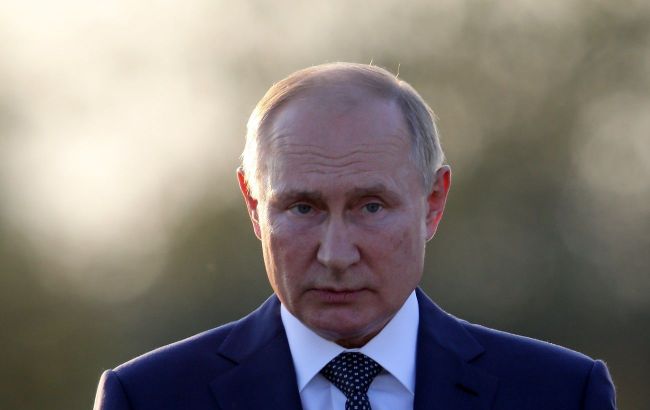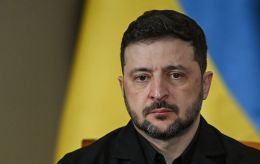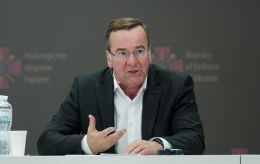Analysis: Why Putin’s maximalist demands will not lead to peace
 Russia's leader Vladimir Putin (Photo: Getty Images)
Russia's leader Vladimir Putin (Photo: Getty Images)
The Russian dictator Vladimir Putin is likely to maintain his pre-war maximalist demands in any potential negotiations with the West about ending the war against Ukraine. The Kremlin leader's stance will not lead to sustainable peace.
Such conclusions were drawn in the report by experts from the American Institute for the Study of War (ISW).
American analysts explained that Putin's demands relate to isolating Ukraine and weakening the North Atlantic Alliance (NATO).
The ISW report analyzed a Financial Times (FT) agency dated January 10, in which a former senior Kremlin official and another source stated that Putin would maintain his pre-war demands in any such negotiations, including preventing Ukraine's NATO membership and forcing the bloc to withdraw military contingents from Eastern European countries.
The mentioned sources told FT that the Russian dictator would try to "change the rules" of the international system to ensure there are "no threats to Russia," which effectively aligns with his ultimatum to the United States in December 2021 before the full-scale invasion of Ukraine.
In 2021, Putin demanded the following from NATO:
- To commit to not admitting Ukraine or any other countries as new members.
- To ensure the US supports a ban on NATO expansion and that the bloc does not deploy military forces in countries that became NATO members after May 1997.
- To prohibit any NATO military activities in Ukraine, Eastern Europe, the Caucasus, and Central Asia.
- To ban the deployment of medium-range missiles in regions that could reach Russian territory.
- To prevent the US from deploying medium-range missiles in Europe or nuclear missiles outside US territory.
ISW noted that Putin specifically used and intensified this narrative in 2021 to shape the information space and justify the full-scale invasion of Ukraine before the February 2022 attack.
Meanwhile, analysts point out that NATO "did not undertake any meaningful actions to expand in Eastern Europe or advance Ukraine's future NATO membership between the 2008 Bucharest Declaration, which promised Ukraine and Georgia eventual NATO membership, and 2022."
The Institute for the Study of War states that Putin's demands from December 2021 "notably extend beyond Ukraine and aim to roll NATO back."
"The Kremlin likely seeks to resurrect this narrative in an attempt to manipulate Western leaders into acquiescing to Putin's maximalist demands that would weaken NATO under the guise of 'compromise' in any future peace negotiations regarding the war in Ukraine," the experts wrote.
The report also recalled that on January 10, Putin's press secretary, Dmitry Peskov, reiterated that the Kremlin was ready to negotiate with US President Donald Trump without any "preconditions."
At the same time, ISW continues to assess that "no negotiations will result in a meaningful or sustainable peace as long as Putin remains committed to his pre-war demands for full Ukrainian capitulation and the weakening of NATO."
Negotiations between Ukraine and Russia
Currently, Ukraine and Russia are not conducting peace talks. However, following Donald Trump's victory in the US election, during which he expressed intentions to bring Kyiv and Moscow to the negotiating table, various commentators, top officials, and even country leaders have increasingly suggested that negotiations could begin as early as 2025.
Earlier, Ukrainian President Volodymyr Zelenskyy noted that he would first like to receive guarantees from Trump before initiating negotiations with Russia.
Meanwhile, Russian Foreign Minister Sergey Lavrov recently rejected "peace proposals" from Trump's team, even though no official US initiatives have been announced.
In late November last year, Deputy Foreign Minister Andriy Sybiha emphasized that Russia, despite its constant statements, does not actually want peace in the war.
Additionally, in December, ISW experts noted that Russia rejected revisiting conditions for negotiations with Ukraine.

